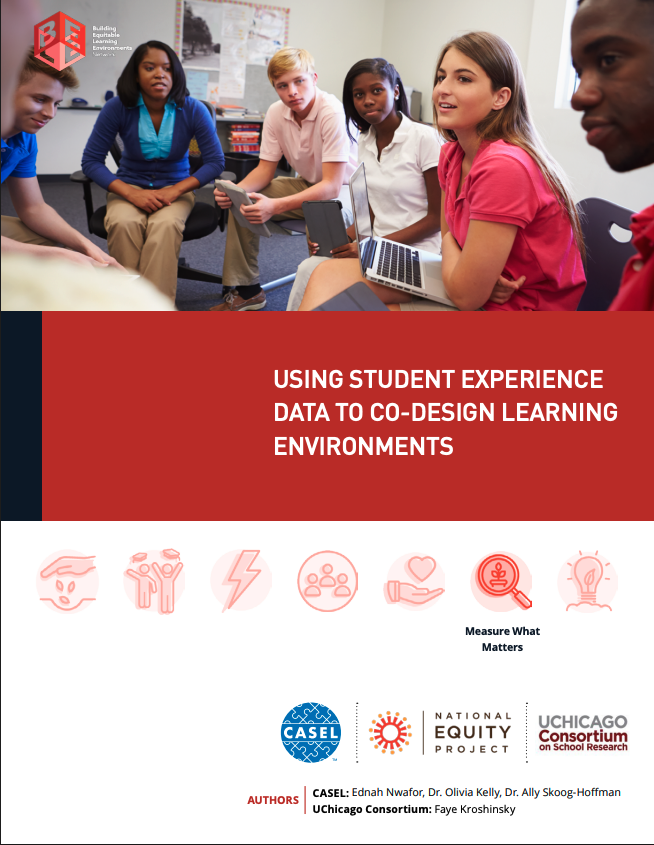Using Student Experience Data to Co-Design Learning Environments
October 2023
By CASEL, National Equity Project, UChicago Consortium and the BELE Network
This brief shares learnings from BELE district partnerships around the BELE Essential Action: Measure What Matters. This Essential Action focuses on achieving equitable learning environments through the routine collection and review of relevant student feedback data to co-design new practices and policies to improve learning environments. Researchers surfaced five key actions necessary for supporting effective implementation of student-centered data systems to improve learning conditions and experiences at the classroom and school level:
Center and share power with students through student experience data.
Clearly and frequently communicate the purpose for student data systems.
Use data to cultivate and model a culture of learning and growth for adults and students.
Build on and nurture foundational trust and safety through practices that demonstrate respect and professional regard.
Demonstrate and facilitate effective implementation through district- and school-level support.

